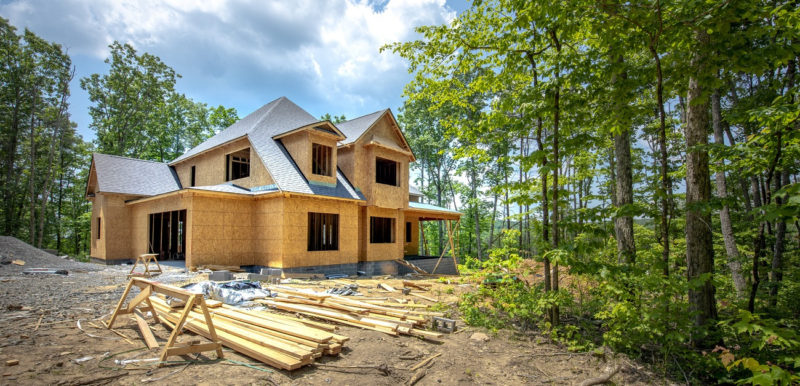They’ve jumped 42% over the last three years, data shows. What are builders doing to bring some relief to the market?
Inflation is pushing up homebuilding costs at an unprecedented rate, according to Bank of America’s Who Builds the House? report. Supply-chain disruptions and labor shortages are adding pressure to rising prices.
The average cost for materials to build a single-family home jumped 42% from 2018 to 2021, adding thousands of dollars to the price of a new home, according to the report. The median sales price of a new home in April reached a record $450,600, a 20% hike from a year earlier, Commerce Department data shows.
The higher material costs have been passed along to home buyers, who are facing the double whammy of rapidly rising mortgage rates. First-time buyers, in particular, are increasingly becoming priced out of the new-home market, with only about 10% of new homes in April on the market priced at less than $300,000, according to the National Association of Home Builders. A year prior, that share was 25%.
As buyers back away from the new-home market, builders are slowing production. Housing starts have fallen to a 13-month low, and single-family construction dropped 9.2% in May, according to the Commerce Department.
“Residential construction material costs are up 19% year over year, with cost increases for a variety of building inputs, except for lumber, which has experienced recent declines due to a housing slowdown,” says NAHB Chief Economist Robert Dietz. What’s more, “The increase for mortgage rates for the first half of 2022 has priced out a significant number of prospective home buyers.”
Some builders are reducing their prices. For example, the share of new-construction homes with price cuts has quadrupled compared to a year earlier in metro areas like Austin, Texas, and Nashville, Tenn., according to Redfin data. Price cuts in new construction have tripled in Phoenix and doubled in Tampa, Fla.
Stuart Miller, executive chairman of homebuilder Lennar, told CNBC that he expects prices will readjust moving forward due to higher mortgage rates, which have nearly doubled over the past year. Rising material costs combined with accelerating mortgage rates have left buyers facing “a little sticker shock, and that will likely lead to a pause … and then some reconciliation,” he said. “But there is still a housing shortage across the country. We’ll adjust prices as need be. … Pricing may come down a bit to accommodate affordability. But America still needs homes, and we’ll continue to fill that void.”
Building Material Woes Continue
Framing lumber and engineered wood have experienced the largest price increases among materials, according to the Bank of America report. Lumber prices have been volatile over the past year; prices hit an all-time high in 2021, adding $18,600 to the average cost of a new home, according to the NAHB. However, lumber prices have fallen in recent weeks and are trading at yearly lows, though they are still higher than in 2020. Still, housing analysts say it likely will take time before consumers see any savings due to the price dip.
Other material costs in home construction also have contributed to rising prices, such as upticks in concrete, flooring and paint. The price of exterior paint jumped 14.5% in the first five months of this year, the NAHB notes. Window and door shortages, which have been blamed for many construction delays, also have added to costs. The plumbing sector has been hit hard by a labor shortage that is also leading to delayed timelines, builders note.
Further, inflation is adding to consumer costs in household furnishings, which saw prices climb 9.3% annually in January, according to the Labor Department. Appliances were up 8.5%, and floor coverings up 7.2% in the same time period.
Source: magazine.realtor













